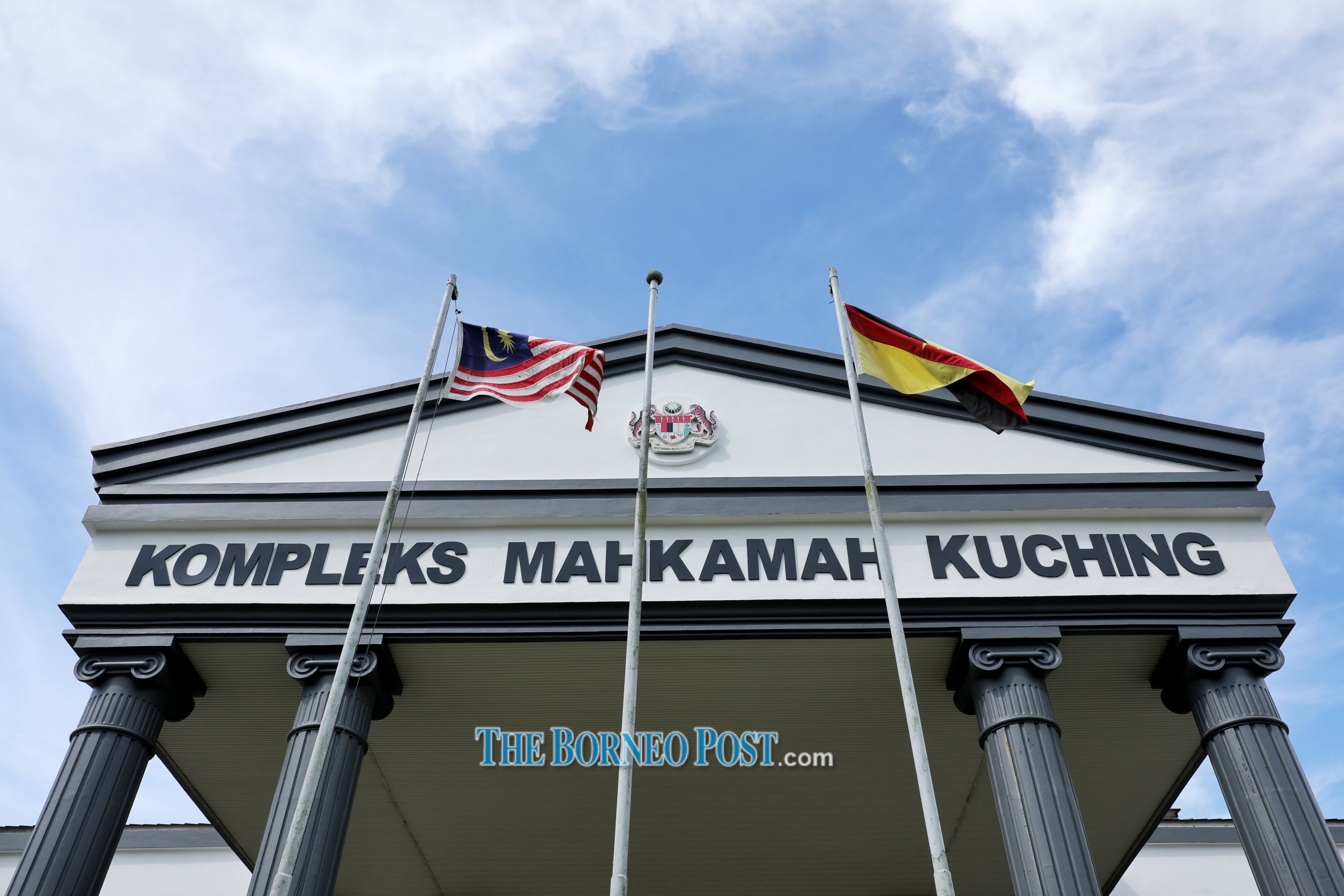ADVERTISE HERE

Sarawak is now the first state in Malaysia to have ombudsman law, after the passing of the landmark Bill at the State Legislative Assembly on Nov 20, 2023. — Bernama photo
KUCHING (Nov 20): Sarawak is now the first state in Malaysia to have ombudsman law, with appointment of an Ombudsman, after the Sarawak Ombudsman Bill 2023 was passed at the State Legislative Assembly (DUN) today.
The passing of the landmark Bill, tabled by Deputy Premier Datuk Amar Awang Tengah Ali Hasan and seconded by Deputy Premier Datuk Amar Dr Sim Kui Hian, received unanimously support from all the members of the Assembly present.
Prior to that, Awang Tengah, in his third reading of the Bill, refuted claims made by Chong Chieng Jen (DAP-Padungan) about the Bill being ‘alang-alang’ (half baked), saying that Chong did not really understand the whole intent and purpose of this Bill.
Awang Tengah also said Baru Bian (PSB-Ba Kelalan), in his debate speech, had commended the drafting of the Bill as ‘well-crafted’.
“The reports of the activities of Ombudsman and on the investigation will be fully published and laid in the DUN including any finding, recommendation and opinion of the Ombudsman.
“Also a special select committee may be appointed upon a motion made under Standing Order to consider any matter arising from the report. Unlike Public Account Committee (PAC), the report made by the Ombudsman has legal force,” said Awang Tengah.
Earlier during the Second Reading of the Bill, Awang Tengah said Sarawak was now exercising its constitutional authority to establish Sarawak Ombudsman with the primary objective of elevating the standards of accountability in public administration and to provide measures against maladministration by the public service agencies.
He added that pursuant to item 7 of List II (State List) of the Ninth Schedule of the Federal Constitution, the state is empowered to legislate on matters relating to the machinery of the state government, which is exclusively for state services.
“This law will, therefore, enhance transparency and accountability in government agencies by allowing the public to report maladministration to the Ombudsman.
“The Ombudsman will ensure checks-and-balances elements are in place and will enable the government to improve its public delivery systems and procedures.
“This will lead to a better administration and to increase public trust and respect in the government,” he said.
As such, Awang Tengah pointed out that the establishment of Sarawak’s very own law on ombudsman would provide independent monitoring over the performance of the state public service agencies.
“The Sarawak Ombudsman will ensure fairness, transparency and accountability in their service delivery, which is essential for Sarawak to progress towards becoming a developed state by 2030,” he said.
On Sarawak Ombudsman, Awang Tengah said it would be led by a Chief Ombudsman and a Deputy Chief Ombudsman, along with three to five other ombudsmen who possessed the relevant expertise and experience to ensure its effectiveness.
The appointment of these ombudsmen would be made by the Yang di-Pertua Negeri Sarawak, and they would each take oath of office for a maximum term of three years, with the possibility of reappointment.
“This is a clear manifestation of our commitment to maintain integrity and ensure that state public service agencies would always provide high-quality services to the ‘rakyat’ (people),” added Awang Tengah.
He also said the Sarawak Ombudsman’s Office would be managed by the Chief Administrator, appointed by the minister from among the members of the state public service, and he would be assisted by such number of officers.
“The Ombudsman staff and others acting on their behalf are immune from civil and criminal proceedings in the discharge of their official duties,” he added.
Awang Tengah also hailed the Ombudsman Bill as ‘epitomising Sarawak’s strategic direction as outlined in the Post-Covid Development Strategy (PCDS) 2030, focusing on becoming a high-income economy by 2030.
“The Ombudsman is a recognised concept adopted by most democratic countries across the globe, with 115 out of 195 countries having their own ombudsman institutions.”
Awang Tengah said in an effort to produce a practical and implementable law for the state of Sarawak and to learn about the best practices, the Sarawak government led by the Premier Datuk Patinggi Tan Sri Abang Johari Tun Openg, on Aug 21 this year, went to Sweden to meet with the Swedish Chief Parliamentary Ombudsman, Erik Nymansson.
“Sweden serves as an exemplary model for countries around the world due to its pioneering role in establishing the Ombudsman system 214 years ago.
“It is evident that Sweden’s experience with the Ombudsman system can provide valuable insights for other countries to emulate when establishing similar Ombudsman systems,” he said.
Apart from Chong and Baru, the other 20 assemblypersons debating the Bill were Razaili Gapor (GPS- Beting Maro), Joseph Chieng (GPS-Bukit Assek), Royston Valentine (GPS-Tellian), Lidam Assan (GPS-Katibas), Nicholas Kudi Jantai (GPS-Baleh), Johnny Pang (GPS-Tanjong Batu), Mohd Chee Kadir (GPS-Kabong), Billy Sujang (GPS-Opar), Dayang Noorazah Awang Sohor (GPS-Lingga), Safiee Ahmad (GPS-Daro), Christopher Gira (GPS-Tamin), Kennedy Chukpai (GPS-Murum), Datuk Ding Kuong Hiing (GPS-Meradong), Dato Sri Huang Tiong Sii (GPS-Repok), Wilfred Yap (GPS-Kota Sentosa), Dato Lo Khere Chiang (GPS-Batu Kitang), Fazzrudin Abdul Rahman (GPS-Tupong), Datuk Mong Dagang (GPS-Bukit Begunan), Dato Ibrahim Baki (GPS-Satok) and Dr Johnical Rayong (PSB-Engkilili).









 English (US) ·
English (US) ·